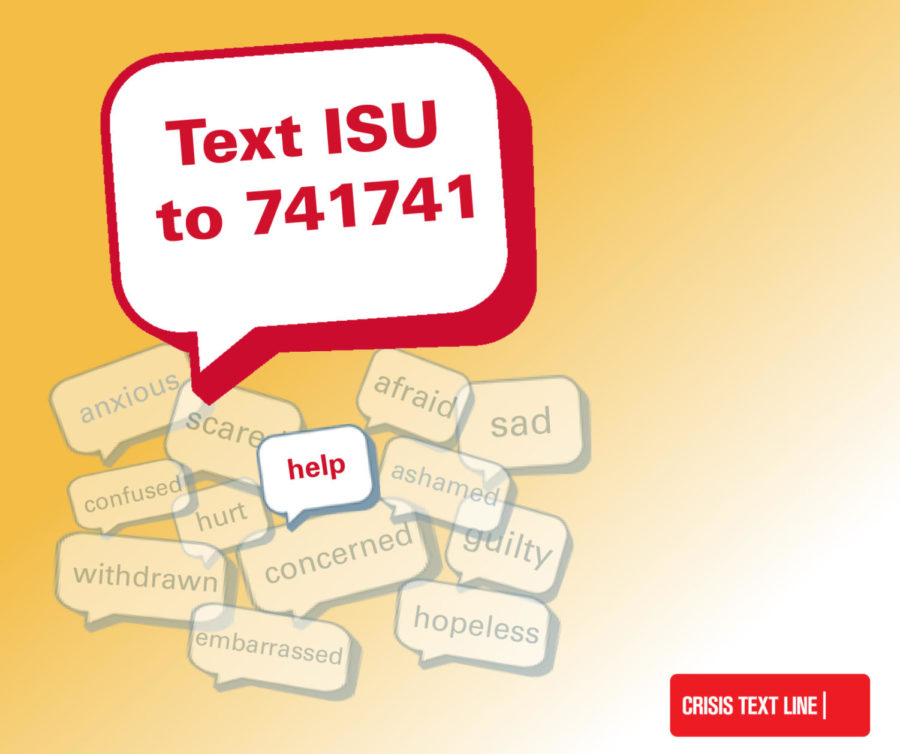Resources for coping with trauma
Courtesy of Theilen Health Center
Crisis Text Line is a way for students having issues such as depression, suicidal thoughts or anxiety to receive support as simply as texting “ISU” to 741741.
February 19, 2017
There are a variety of resources for individuals who may be experiencing trauma after the shooting that injured three on Welch Avenue early Sunday morning.
Students can use a 24/7 crisis text line by texting “ISU” to 741741, and a crisis counselor will respond within minutes.
During the week, students can go to Students Counseling Services, located in the Student Services building, to talk to someone confidentially.
“To get started with counseling or other SCS services, please walk in during our walk-in hours when you have about 1.5 to 2 hours of free time, according to the SCS website. Current walk-in hours are Monday, Tuesday, Wednesday and Thursday 8 p.m. to 3 p.m.
SCS’s office phone number is (515) 294-5056. The Ames Police Mental Health Advocate, Julie Saxton, can be reached at (515) 239-5463.
The Center for Disease Control and Prevention recommends looking out for the following signs of distress which are common for those dealing with trauma:
- Feelings of shock, numbness and disbelief
- Changes in energy and activity levels
- Difficulty concentrating
- Changes in appetite
- Sleeping problems
- Nightmares and upsetting thoughts and images
- Feeling anxious or fearful
- Physical reactions, such as headaches, body pains, stomach problems and skin rashes
- Chronic health problems can get worse
- Changes in use of alcohol, tobacco or other drugs
- Anger or short-temper
“During and after a disaster it is natural to experience different and strong emotions,” according to CDC. “Everyone will react differently and your own feelings will change throughout. Notice and accept how you feel.
“Taking care of your emotional health during an emergency will help you think clearly and react to the urgent needs to protect yourself and your family during an emergency. Self-care during an emergency will help your long-term healing.”
















